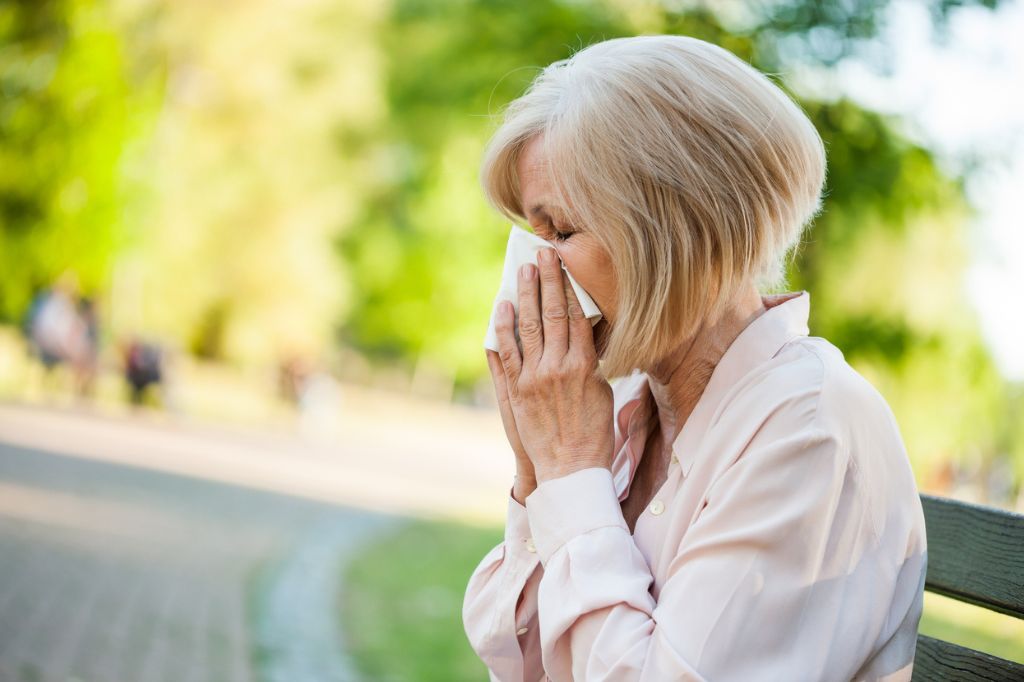
The Negative Effects of Vaping and E-cigarettes on Asthma and Overall Health
Vaping has become increasingly popular recently, especially among teens and young adults. According to the CDC, over 2.5 million US middle and high school students reported using e-cigarettes in 2022. Although vaping was once considered a safer alternative to traditional cigarettes, recent studies have shown that vaping can have serious adverse effects. Therefore, if you vape or know someone who does, it is important to understand the negative effects of vaping, its health risks and ways to quit. Northeast Allergy has shared the following information to help protect your health.
How Vaping Can Impact Your Health
Using an e-cigarette may have serious consequences on your health, particularly if you suffer from allergies or asthma. Before you think about vaping, consider the following health risks associated with e-cigarettes and vape products:
Lung Damage
Vaping can damage the airways in your lungs, leading to a range of respiratory and lung issues. One major concern is e-cigarette or vaping use-associated lung injury (EVALI). EVALI occurs due to the ongoing use of e-cigarettes, resulting in acute lung injury. According to a review published in Cureus, 68 patients have died due to EVALI, and over 2,500 have been hospitalized in the US as of February 2020.
Moreover, those who vape are more likely to develop popcorn lung. This rare condition occurs when a chemical called diacetyl is released into the lungs. This chemical is used to flavor some e-cigarettes and may lead to permanent lung damage. Furthermore, vaping may lead to a collapsed lung. The best way to avoid these health concerns is by not using e-cigarettes at all.
Worsening Allergy and Asthma Symptoms
If you have asthma or allergies, vaping can exacerbate your symptoms. When you vape, the vapor released into your lungs can irritate your respiratory system and cause inflammation of the airways. This can lead to coughing, wheezing, and difficulty breathing. Using an e-cigarette while being diagnosed with asthma may cause an asthma attack. Those with allergies may also notice their symptoms worsening after vaping. For example, you may become more congested, experience frequent sneezing, and have watery eyes.
Cardiovascular Risks
According to an NIH-funded study, long-term use of e-cigarettes has been shown to damage the body’s blood vessels. This increases the risk of heart disease, stroke, and other cardiovascular problems. In addition, the nicotine in e-cigarettes plays a role in cardiovascular health. Nicotine raises blood pressure and heart rate, putting additional stress on the cardiovascular system. It can also constrict blood vessels, reducing the amount of oxygen-rich blood that reaches vital organs and tissues. The chemicals used in e-cigarettes and vape products can also be toxic and have been linked to cardiovascular health risks.
Nicotine Poisoning
Nicotine poisoning is a serious concern associated with vaping, particularly for young children and inexperienced vapers. The concentrated form of nicotine found in e-cigarettes can be harmful, and accidental ingestion or exposure to high levels of nicotine in e-cigarettes may lead to symptoms such as:
- Nausea
- Vomiting
- Increased blood pressure
- Arrhythmia
- Convulsions
Many vape products have higher levels of nicotine than traditional cigarettes. Most adults can tolerate nicotine poisoning, but it can be dangerous for younger children and teens. If you suspect nicotine poisoning or observe any of these symptoms in someone who has been exposed to nicotine, seek immediate medical attention.
Mental Health Issues
Mental health disorders are also linked to vaping. Those who vape are more likely to suffer from suicidal ideation, depression, and anxiety. Additionally, the nicotine in e-cigarettes can affect the brain’s reward system, interfering with normal functioning. This can increase the risk of developing mental health issues and exacerbate pre-existing mental health conditions. When you are feeling stressed, anxious, or depressed, seeking help from a mental health professional rather than turning to vaping is essential.
Tips for Quitting Vaping
Quitting is the best way to avoid the short and long-term effects of using vape products. Unfortunately, many of these products have high nicotine levels, making quitting difficult. Nicotine is a highly addictive substance and naturally occurs in tobacco. As a result, many people experience withdrawal symptoms such as anxiety, irritability, insomnia, and cravings when trying to quit. The following tips can help you quit vaping and decrease your cravings:
Educate Yourself
Education is vital for successfully quitting. By learning about the risks of e-cigarettes, understanding nicotine addiction, and identifying personal triggers, you can make informed decisions and develop effective strategies to overcome this habit. Educating yourself provides motivation, helps you find resources and coping strategies, and reinforces the benefits of quitting. Stay informed, gather knowledge, and empower yourself to break free from vape products.
Set a Quit Date
Having a set quit date can help you stay committed to quitting. You can make this date as soon as possible or choose a more realistic timeline that works for you. If you have difficulty sticking to your quit date, consider telling someone about it. This will help hold you accountable for quitting on your chosen date and provide extra support and motivation. Gradually reducing your usage before the quit date may also help ease the transition.
Find Support and Accountability
When trying to quit, having support and accountability may increase your chances of success. Sharing your decision to quit with friends and family can make a significant difference. When times are tough, lean on them to hold you accountable and support you. If you cannot get support from those around you, online support groups, professional help, and other resources can provide guidance and inspiration. Remember, finding support and accountability is not a sign of weakness but a smart approach to overcoming addiction.
Find Healthy Alternatives
Finding healthy alternatives is crucial when quitting vaping. Try exercising regularly, practicing mindfulness and relaxation techniques, pursuing hobbies and interests, spending time in nature, staying hydrated, and chewing gum. These activities can help you cope with cravings, relieve stress, and provide a sense of reward. If you can create a positive routine and find healthy alternatives, it will be easier to break free from vaping.
Treat Your Allergies and Asthma With Northeast Allergy
Are you struggling with allergies and asthma? Northeast Allergy, Asthma, and Immunology is here to help. Our team of experienced specialists is dedicated to providing comprehensive and personalized care for individuals with allergies and asthma conditions. Don’t let allergies and asthma control your life. Instead, take charge of your health and book an appointment with Northeast Allergy today. Our experts will conduct a thorough evaluation, create a tailored treatment plan, and provide the support you need to manage your symptoms effectively.



